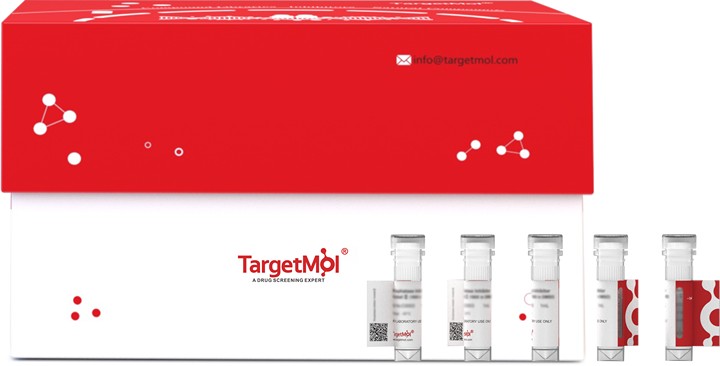- Remove All
 Your shopping cart is currently empty
Your shopping cart is currently empty
IFN gamma Protein, Human, Recombinant (E. coli)
IFN gamma, also known as IFNG, is a secreted protein that belongs to the type II interferon family. IFN gamma is produced predominantly by natural killer and natural killer T cells as part of the innate immune response, and by CD4 and CD8 cytotoxic T lymphocyte effector T cells once antigen-specific immunity develops. IFN gamma has antiviral, immunoregulatory, and anti-tumor properties. IFNG, in addition to having antiviral activity, has important immunoregulatory functions, it is a potent activator of macrophages and has antiproliferative effects on transformed cells and it can potentiate the antiviral and antitumor effects of the type I interferons. The IFNG monomer consists of a core of six α-helices and an extended unfolded sequence in the C-terminal region. IFN gamma is critical for innate and adaptive immunity against viral and intracellular bacterial infections and tumor control. Aberrant IFN gamma expression is associated with some autoinflammatory and autoimmune diseases. The importance of IFN gamma in the immune system stems in part from its ability to inhibit viral replication directly, and most importantly from its immunostimulatory and immunomodulatory effects. IFNG also promotes NK cell activity.

IFN gamma Protein, Human, Recombinant (E. coli)
| Pack Size | Price | Availability | Quantity |
|---|---|---|---|
| 20 μg | $76 | In Stock | |
| 100 μg | $177 | 7-10 days |
Product Information
| Biological Activity | Measured in anti-viral assays using WISH cells infected with vesicular stomatitisvirus (VSV). The ED50 for this effect is 8-80 pg/mL |
| Description | IFN gamma, also known as IFNG, is a secreted protein that belongs to the type II interferon family. IFN gamma is produced predominantly by natural killer and natural killer T cells as part of the innate immune response, and by CD4 and CD8 cytotoxic T lymphocyte effector T cells once antigen-specific immunity develops. IFN gamma has antiviral, immunoregulatory, and anti-tumor properties. IFNG, in addition to having antiviral activity, has important immunoregulatory functions, it is a potent activator of macrophages and has antiproliferative effects on transformed cells and it can potentiate the antiviral and antitumor effects of the type I interferons. The IFNG monomer consists of a core of six α-helices and an extended unfolded sequence in the C-terminal region. IFN gamma is critical for innate and adaptive immunity against viral and intracellular bacterial infections and tumor control. Aberrant IFN gamma expression is associated with some autoinflammatory and autoimmune diseases. The importance of IFN gamma in the immune system stems in part from its ability to inhibit viral replication directly, and most importantly from its immunostimulatory and immunomodulatory effects. IFNG also promotes NK cell activity. |
| Species | Human |
| Expression System | E. coli |
| Tag | Tag Free |
| Accession Number | P01579 |
| Synonyms | Interferon γ,Interferon Gamma,IFN γ,IFN gamma,IFI,IFG |
| Construction | A DNA sequence encoding the human IFNG (P01579) (Gln24-Gln166) was expressed. |
| Protein Purity | ≥ 95 % as determined by SDS-PAGE. ≥ 95 % as determined by SEC-HPLC. |
| Molecular Weight | The recombinant human IFNG consists of 144 amino acids and predicts a molecular mass of 16.91 kDa. |
| Endotoxin | < 5 EU/mg of the protein. |
| Formulation | Lyophilized from a solution filtered through a 0.22 μm filter, containing 50 mM Tris, pH 8.0. . Typically, a mixture containing 5% to 8% trehalose, mannitol, and 0.01% Tween 80 is incorporated as a protective agent before lyophilization. |
| Reconstitution | A Certificate of Analysis (CoA) containing reconstitution instructions is included with the products. Please refer to the CoA for detailed information. |
| Stability & Storage | It is recommended to store recombinant proteins at -20°C to -80°C for future use. Lyophilized powders can be stably stored for over 12 months, while liquid products can be stored for 6-12 months at -80°C. For reconstituted protein solutions, the solution can be stored at -20°C to -80°C for at least 3 months. Please avoid multiple freeze-thaw cycles and store products in aliquots. |
| Shipping | In general, Lyophilized powders are shipping with blue ice. |
| Research Background | IFN gamma, also known as IFNG, is a secreted protein that belongs to the type II interferon family. IFN gamma is produced predominantly by natural killer and natural killer T cells as part of the innate immune response, and by CD4 and CD8 cytotoxic T lymphocyte effector T cells once antigen-specific immunity develops. IFN gamma has antiviral, immunoregulatory, and anti-tumor properties. IFNG, in addition to having antiviral activity, has important immunoregulatory functions, it is a potent activator of macrophages and has antiproliferative effects on transformed cells and it can potentiate the antiviral and antitumor effects of the type I interferons. The IFNG monomer consists of a core of six α-helices and an extended unfolded sequence in the C-terminal region. IFN gamma is critical for innate and adaptive immunity against viral and intracellular bacterial infections and tumor control. Aberrant IFN gamma expression is associated with some autoinflammatory and autoimmune diseases. The importance of IFN gamma in the immune system stems in part from its ability to inhibit viral replication directly, and most importantly from its immunostimulatory and immunomodulatory effects. IFNG also promotes NK cell activity. |
Dose Conversion
Calculator
Tech Support

Copyright © 2015-2025 TargetMol Chemicals Inc. All Rights Reserved.


